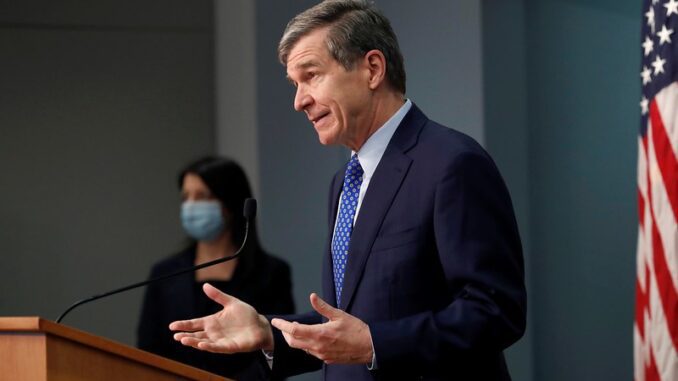
RALEIGH – Gov. Roy Cooper and N.C. Department of Health and Human Services Secretary Mandy Cohen announced that beginning on March 17, people in Group 4 who have a medical condition that puts them at higher risk of serious illness and those who live in certain congregate settings will be eligible for COVID-19 vaccination. The rest of Group 4, which includes other essential workers, will become eligible April 7.
“This move to Group 4 is good news,” said Gov. Cooper. “I know there are many efforts across the state getting vaccines to people as quickly and fairly as possible and I want our providers to know that their work is making all the difference.”
NCDHHS updated its timeline based on provider feedback and expected supply. As with previous eligibility changes, NCDHHS says, some vaccine providers may not be ready to open to Group 4 on March 17 if they are still experiencing high demand for vaccines in Groups 1 through 3.
“We are very fortunate to now have three tested, safe and effective COVID-19 vaccines that keep people out of the hospital and prevent death from this virus,” said Secretary Cohen. “With improving supplies, North Carolina can get more people vaccinated sooner and meet our goals to provide equitable access to vaccinations in every community in the state.”
More than 1.1 million North Carolinians have been fully vaccinated, according to the latest update on the state’s health dashboard.
Gov. Cooper also signed HB 196, a bill that allocates $1.7 billion in federal funds for COVID-19 testing, tracing, and prevention needs, as well as $100 million for public schools and $290 million for higher education. It also includes $40 million for summer learning options.
Senior N.C. House Appropriations Chairs Donny Lambeth (R-Forsyth), Jason Saine (R-Lincoln), and Dean Arp (R-Union) released a joint statement about the bill, saying, “The General Assembly is committed to delivering additional funding relief and regulatory flexibility to help North Carolinians still suffering in this crisis as soon as possible.”
“While I will ask legislators to revisit some areas of this legislation, including changes necessary to quickly deliver rental assistance, these funds will bring needed relief for people who are struggling, schools and small businesses as we strive to emerge from this pandemic,” said Cooper.



